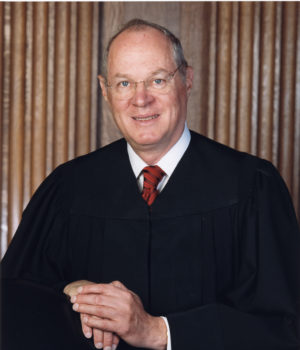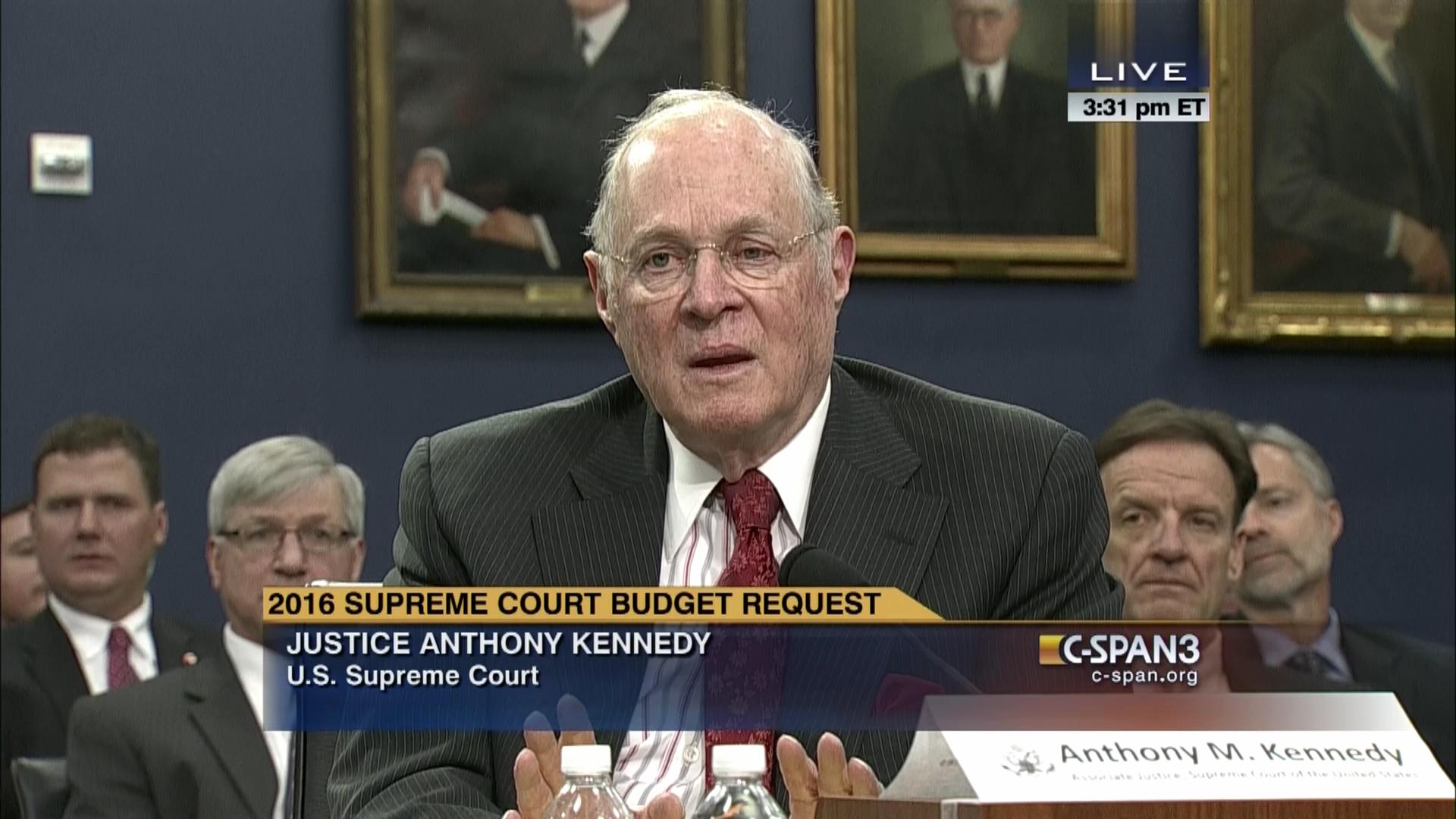Kennedy out: Abortion rights and gay marriage at risk
WASHINGTON — U.S. Supreme Court Justice Anthony M. Kennedy, a key swing vote on the high court, announced Wednesday he is retiring.
The 81-year-old justice’s July 31 retirement will give President Donald Trump the opportunity to appoint another justice, which would give the court a consistent 5-4 conservative majority.
Kennedy told Trump of his retirement in a letter Wednesday.

“For a member of the legal profession, it is the highest of honors to serve on this Court,” Kennedy wrote. “Please permit me by this letter to express my profound gratitude for having had the privilege to seek in each case how best to know, interpret and defend the Constitution and the laws that must always conform to its mandates and promises.”
Kennedy has cast the pivotal vote on numerous cases, joining more liberal justices in cases involving gay rights, affirmative action, abortion and voting rights. He wrote more than 400 decisions and participated in more than 1,400.
At the White House, Trump praised Kennedy as a “great justice of the Supreme Court” and said he would “begin immediately” a search for Kennedy’s replacement from among 25 potential nominees, vetted by conservative groups.
The Supreme Court said in a news release that Kennedy decided to retire after 30 years on the high court because of his “deep desire’ to spend more time with his family.
Kennedy, a 1988 appointee of former President Ronald Reagan, wrote the court’s landmark 5-4 ruling in 2015 legalizing same-sex marriage and has joined the court’s more liberal justices in banning the death penalty for juveniles and ruling Guantanamo Bay detainees could challenge detentions.
But Kennedy also has voted with more conservative justices to eviscerate the Voting Rights Act, expand Second Amendment gun ownership rights and allow corporations to make unlimited contributions to political candidates.
Trump’s first appointee, Neil Gorsuch, who succeeded the late Antonin Scalia, in April 2017, has dramatically shifted the court’s balance, and cast deciding votes, including in Tuesday’s 5-4 decision upholding Trump’s travel ban.
Gorsuch’s confirmation came after a bruising battle in the Senate. Republicans changed Senate rules to overcome a Democratic filibuster by relying on the “nuclear option” – requiring only a simple majority of 51 votes rather than 60 to break a filibuster on a Supreme Court nominee.
Liberal activists worry Kennedy’s replacement, to be nominated from a list of Supreme Court candidates vetted by the conservative Heritage Foundation and Federalist Society, will be much more likely to vote to overturn Roe v. Wade, as many conservatives hope to do. A more conservative Trump appointee also would be more likely to reject challenges to the death penalty and scale back race-based Affirmative Action and gay rights.
This article is published with permission from Talk Media News.

Gary Gately, a seasoned journalist, has won 15 national, regional and local awards for reporting and writing news, investigative, public service, feature, business and travel pieces. Gately’s work has been published by The New York Times, The Boston Globe, The Baltimore Sun (where he worked in reporting and editing jobs for 11 years), Baltimore Examiner, the Chicago Tribune, The Atlanta Journal-Constitution, The Guardian, The Washington Post, The Dallas Morning News, Business Week, Newsweek, Arrive Magazine, The Center for Public Integrity, CBSNews.com, CNBC.com, ABCNews.com, USAToday.com, HealthDay, The Crime Report, United Press International and numerous other newspapers, websites and magazines.
His coverage has received awards from the Associated Press, the Society of Professional Journalists, the Washington-Baltimore Newspaper Guild, the Maryland-Delaware-D.C. Press Association and the Society of American Travel Writers (first-place Lowell Thomas Award for best newspaper travel story/U.S.-Canada (immigrant New York).
Gately also has extensive experience editing for newspapers and websites, has taught college journalism courses in news writing, magazine writing and travel writing and is the author of Maryland: Anthem to Innovation, a book on the state’s history, industries and attractions.

